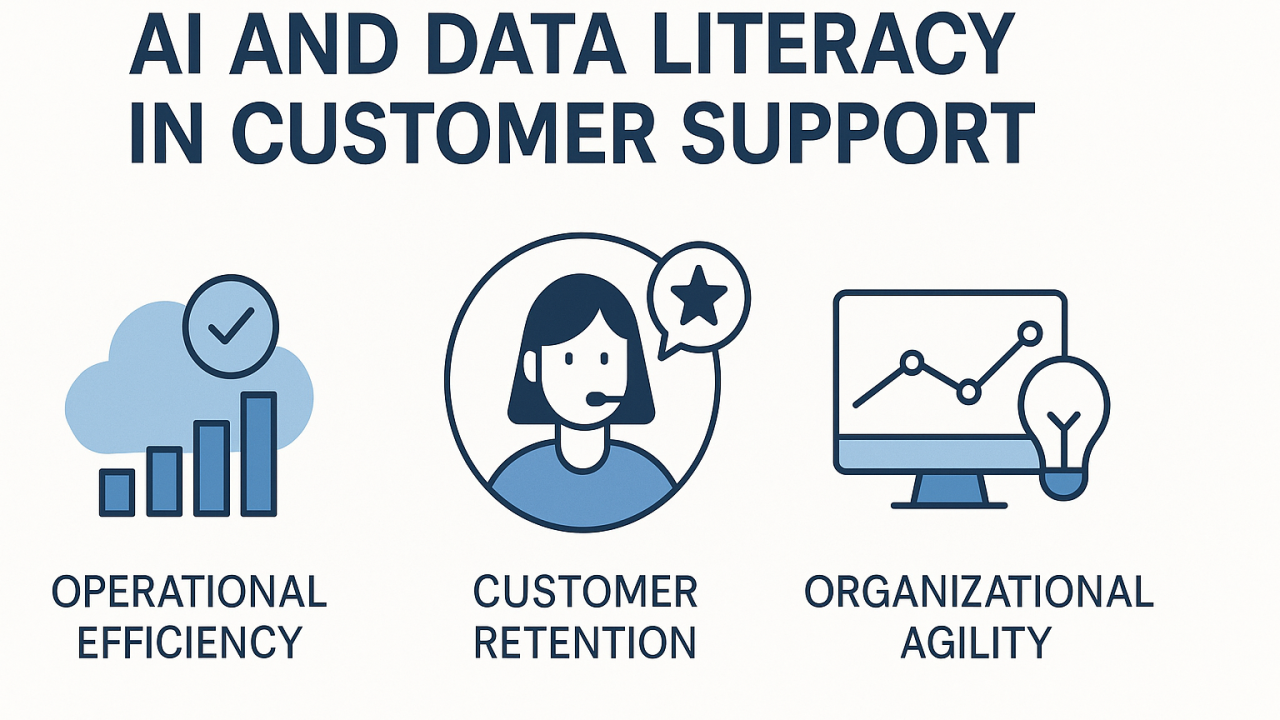Why SaaS Support Leaders Must Embrace AI and Data Fluency

In the World Economic Forum’s Future of Jobs Report 2025, 75% of companies surveyed expect to adopt big data, cloud computing, and AI within the next five years, with AI adoption alone forecasted to disrupt 43% of all jobs globally. Yet, while many SaaS organizations invest in these technologies, support leaders too often remain on the sidelines—viewing AI and data as tools for engineering or product teams rather than as strategic levers for customer success.
This must change.
As SaaS companies race toward hyper-efficiency and personalization, the support function is uniquely positioned to drive digital transformation from the frontlines. Support leaders who embrace AI and data fluency will not only elevate team performance—they’ll help future-proof the entire organization.
Why AI and Data Literacy Now?
SaaS customers expect seamless, intelligent, and proactive experiences. Gone are the days when support could operate as a reactive cost center. Today, support is a strategic differentiator, and that means leveraging every available tool to reduce time-to-resolution, personalize interactions, and surface insights that influence product and customer success strategies.
AI and data fluency are no longer optional. They're foundational to:
- Operational efficiency: AI-enabled triage, intelligent routing, and generative knowledge bases reduce workload and empower self-service at scale.
- Customer retention: Data-driven insights help predict churn, identify friction points, and tailor outreach to at-risk accounts.
- Organizational agility: Fluent support teams can collaborate more effectively with product and data teams, influence roadmap decisions, and respond faster to market shifts.
Building AI and Data Capabilities into Support Teams
Becoming a data-driven, AI-enabled support organization isn’t about hiring data scientists into your org. It’s about cultivating new mindsets and skills within your existing team. Here’s how to start:
- Normalize Data in Daily Workflows Start small by integrating dashboards or regular metrics reviews into team standups. Train agents to interpret key KPIs like CSAT trends, ticket deflection rates, and escalation patterns—not just track them.
- Pilot AI-Powered Tools Thoughtfully Test chatbots, AI summarizers, or predictive analytics tools in sandbox environments. Involve frontline agents early, get their feedback, and co-design processes to ensure adoption is smooth and empowering.
- Upskill with Purpose Provide microlearning resources on AI basics, data storytelling, and prompt engineering. Consider pairing agents with data-savvy colleagues in cross-functional sprints or “AI guilds” to build applied knowledge.
- Reframe AI as Augmentation, Not Replacement Leaders must proactively message that AI is here to enhance, not eliminate, the human role in support. Emphasize the shift from transactional work to strategic problem-solving.
- Create Feedback Loops Between Support and Product Use AI-driven insights to influence product improvements. Build lightweight feedback systems that elevate customer pain points with real-time data to the product team.
The Call to Lead
Digital transformation isn't a product initiative. It's a cultural and operational one—and support leaders are in a prime position to shape it.
Now is the time to shed the outdated perception of support as reactive and manual. Instead, embrace the identity of transformation architect—someone who brings AI literacy, data fluency, and human empathy together to deliver radically better outcomes.
If support leaders don’t lead this evolution, someone else will.
And that would be a missed opportunity—not just for your team, but for the entire business.

